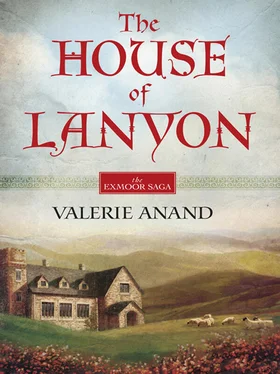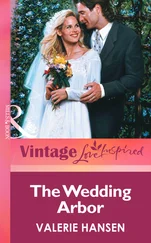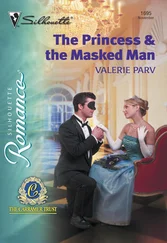Beneath it, her face was round, but there were strong bones within that seeming softness and she had long, sloe-blue eyes, full and heavy with knowledge and an unspoken promise to impart it.
And she was aware of him, of his dark good looks, and young as she was—sixteen, seventeen?—she knew something about men. He couldn’t blame Peter for falling for this. But all the same…good God, Peter was welcome to his wild oats. No one in their senses grudged a young man that. But marriage—that was different.
“Are you Marion Locke?” It came out harshly, as though he were angry with her.
“Yes, that I be.” Her accent was thick. Her looks might be remarkable but he doubted if she knew A from B.
“My name is Richard Lanyon. I believe you know my son, Peter. Is your father at home?”
“Aye. Down on the quay, he be. You want to talk to ’un?”
“I certainly do…ah!”
The woman who had been stirring the pot had put her spoon aside and come toward them. “What is it, Marion?”
“Gentleman axin’ for dad. Name of Lanyon.” Marion smiled beguilingly, as though she imagined he was here to settle the marriage arrangements. You’re wrong, my wench, said Richard to himself.
“Then go and fetch ’un,” said the woman. “He’m unloading the boat. You can take over from ’un. And ax the gentleman in!”
“I’ll want to come back with ’un,” said Marion querulously, standing aside to let Richard enter. “With Dad, I mean. I’ve met the gentleman’s son and it’ll be about me.”
“All the more reason for you to keep out of it. Send your father back here and you stop down there and get that there boat emptied. Go on!”
Marion clearly didn’t want to go, and pouted. Her mother stared at her fixedly, however, and after a moment she left.
“I don’t want to offend anyone, least of all a man and wife in their own home.” Richard, sitting by the fire with his hat on his knees, was conscious of being on someone else’s territory. Not that it was much of a territory. It seemed to consist of this main room, half the size of the one at Allerbrook, an upper half-floor, reached by a ladder, where he could see some pallet beds, and a small back room, partly visible through a half-open door. In there, he could see a workbench with what looked like some half-made garment thrown over it.
A wise arrangement, no doubt, if one wanted to keep bits of thread out of the cooking and bits of fish out of the stitchery. Dried fish hung from the beams above his head, and there were scales and innards all over the table. His farmhouse was plain, but it had a decent oak front door and two spare bedchambers and even a parlour. They weren’t used much, but they were there. This place was squalid. It also reeked of fish. The smell was far stronger and much more disagreeable than the woolly odours of Nicholas Weaver’s home.
Manners, however, were manners. “I’m here on an awkward errand,” he said, “but likely enough, you’ll feel the same way as I do. You’ll be Master Locke, I think?” He addressed the elder of the two men who had come up from the quay shortly after Marion had left. The younger one had the same pale, wiry hair as Marion. The hair probably came from the father, if the older man were he, though his mop was turning grey. “And you—” he looked at the woman who had been tending the pot “—are Mistress Locke?”
“That’s right,” the older man said. “That’s my wife, Mary, and this here’s my son Art and this is my daughter-in-law Sue.” Sue was the one who had been gutting fish. She had left her work and joined the rest of them on seats by the fire. She had a smiling pink face, and by the look of her, was expecting a baby in a few months’ time.
“And the wench who came to fetch us,” said Master Locke senior, “is my daughter Marion. I’ve a notion it’s her you want to talk about. She said it could be. She said she knows your son.”
Art said glumly, “Here we go again.”
“She does know him,” said Richard, plunging straight to the point, “and it’s difficult. But I’m Richard Lanyon from Allerbrook farm, far over the moor. I rear sheep and grow corn and sell wool. It’s a different life from yours. My boy Peter met your Marion at last summer’s Revel and he says they’ve agreed to marry but…there’s no use going all round the moor about it. I’ve other plans for Peter. Besides, I don’t think he’s right for your girl, or she for him. What do you think?”
“I suppose the lad claims they’ve betrothed themselves?” said Master Locke. He didn’t sound surprised.
“More or less, yes.”
“That’ll be the third time,” said Marion’s mother crossly. “All the lads go after her, she’s got such a pretty face.” Richard heard this understatement with amazement. Did these people, who lived together as a family, never actually look at each other? Pretty? A girl as striking as Marion? You might as well say the sea was wet.
“Aye, she’ll promise anything to anyone and go further, very likely,” Art said. “Reckon she did go further last year, with that young sailor off that ship from Norway that had some foreign name. Fjord-Elk, that’s it. Dunno what it means. She’s in port again now. I wouldn’t be surprised if Marion isn’t on the lookout for that young fellow now this minute.”
“You don’t need to worry,” Master Locke assured Richard. “She needs to be married and soon will be, but to someone like ourselves. There’s a likely boy in Porlock, along the coast. Too many folk round here are cousins of ours and the priest won’t have that. You did right to come and warn us, but nothing’s going to come of this. Two silly young people get together and say things, but we don’t need to take no notice. I say nothing about your son, but Marion’s always saying things to young men, mostly the wrong ones. Will you take a dish of stew and a drop of ale with us?”
“I’ll take our share down to Marion,” said Art, “and we’ll eat and drink together and I’ll tell her I’m tired of her foolishness.”
“It’s natural, at her age. She’s barely seventeen,” his father said tolerantly. “We’re an easy-natured lot,” he said. “We don’t watch each other. Marion’s daft and the boys round here turn her head with their sweet talk, but I’ll see it don’t come to anything.”
“She b’ain’t in the family way yet,” Mistress Locke said. “That I do know. And she’d better not be, till she’m wed.”
“He meets her in Lynton when she goes visiting there, so my son says,” Richard said cautiously, concealing his relief at learning that Peter had at least not got his sweetheart into trouble. He had wondered, but it was a difficult question to ask.
“Aye.” Marion’s father nodded. “My mother-in-law and my wife’s sister that’s crippled with the joint evil live up there—they’ve got a cottage and a bit of land at the far end, just outside that valley with the funny-looking rocks in it. Maybe you know it…?”
“Yes, I went there once,” said Richard. It had been long ago, when he was young and had gone to the Revel, just as Peter had done in the summer. He’d taken a girl into the Valley of the Rocks, as many people called it. “I know where you mean,” he said.
“Marion takes fish to my mother and sister twice a month and brings back eggs and goat cheese for us. They keep hens and pasture a few goats in the valley—there’s others do the same—and their maidservant does the milking and makes the cheese,” said Mary Locke. “I wouldn’t like to stop Marion’s visits. They’d be hurt if she didn’t go regular, as they’re fond of her, and they like the fresh fish. And we’d miss the eggs and cheese. I’ve no time to go up there, mostly, and Sue here can’t just now. But don’t fret. It’ll lead nowhere. It don’t do for fisherfolk and farming folk to marry. We don’t understand each other’s lives. That pot of stew’s about ready. It’s not fish.” She grinned, displaying gaps in her teeth but a wealth of good nature. “Last time Marion went, she bring down a nice plump chicken as well, all plucked and drawn ready. Chicken stew, this is. Sue, get the ale.”
Читать дальше












